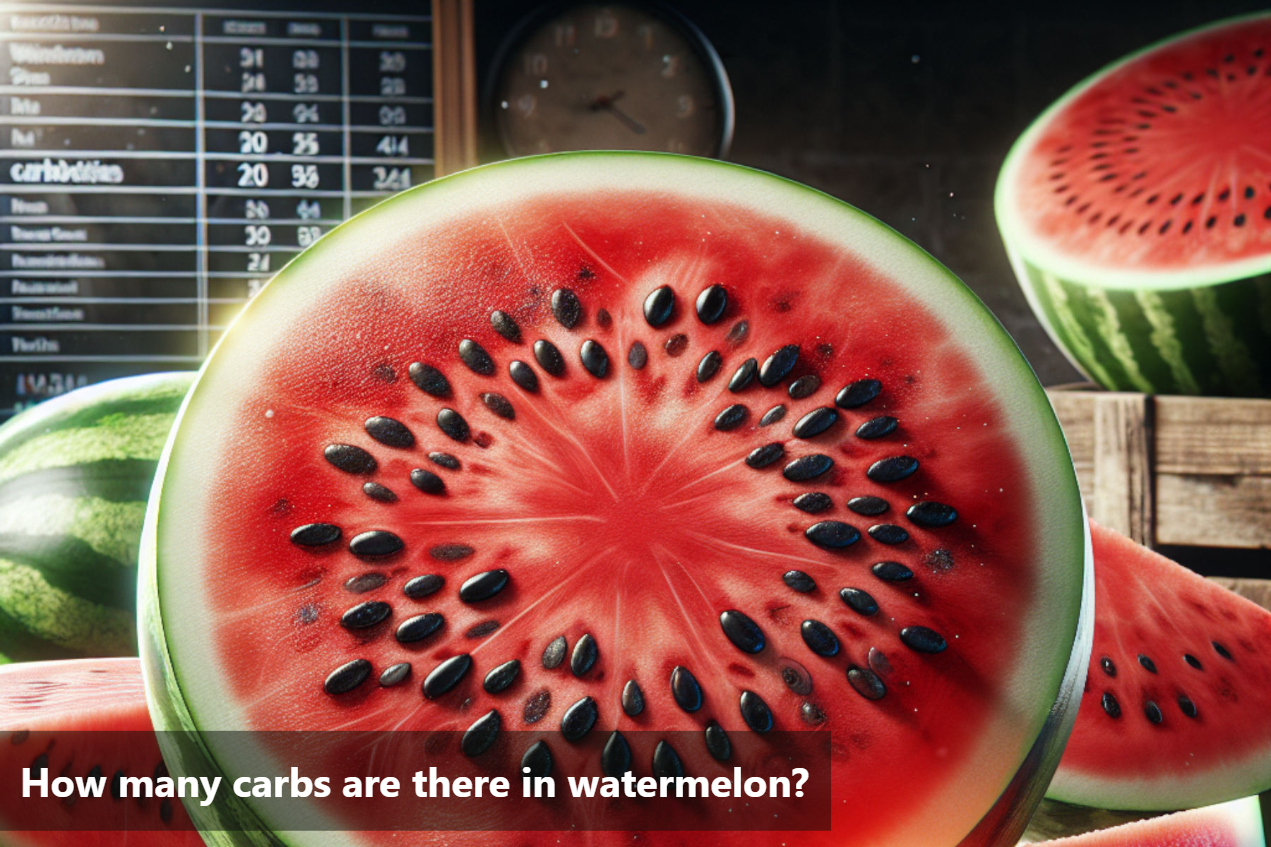
How many carbs are there in watermelon?
Watermelon, a beloved summertime fruit, is not only delicious but also packed with essential nutrients. It is no wonder that this juicy fruit is a popular choice for many. One key aspect to consider when enjoying watermelon is its carb content. Understanding the nutritional value of watermelon, in particular, its carbohydrate composition, can help make informed dietary choices.
A typical serving size of 1 cup of watermelon contains about 11 grams of carbohydrates. These carbs primarily come from natural sugars present in the fruit. Despite being relatively high in carbs compared to other fruits, watermelon's nutritional benefits make it a valuable addition to a healthy diet.
Incorporating watermelon into your diet can provide essential vitamins, such as vitamin C and vitamin A. Moreover, this hydrating fruit is an excellent source of antioxidants, like lycopene, which is known for its potential health benefits. Being mindful of the carb content in watermelon allows individuals to enjoy its goodness while being aware of their carbohydrate intake.

Nutritional Content in Watermelon
2/3 cup (100 grams) of raw watermelon contains:
Calories |
30 |
Water |
91% |
Protein |
0.6 grams |
Carbs |
7.6 grams |
Sugar |
6.2 grams |
Fiber |
0.4 grams |
Fat |
0.2 grams |
Factors Affecting Carb Content in Watermelon
When it comes to the carb content in watermelon, several factors play a significant role in determining the overall carbohydrate levels in this popular fruit.
One key factor that influences the carb content in watermelon is its ripeness. As watermelon ripens, the natural sugars in the fruit increase, leading to a higher carb count. This is why a ripe watermelon tends to be sweeter and contain more carbohydrates compared to an unripe one.
Another factor to consider is the variety of watermelon. Different varieties of watermelon may have varying levels of natural sugars, impacting the overall carb content. Some varieties are naturally sweeter and may contain more carbs per serving than others.
-
Additionally, the serving size of watermelon consumed also affects the carb intake. While watermelon is considered a low-carb fruit, consuming large quantities in one sitting can still contribute to your overall carb intake for the day. It's essential to be mindful of portion sizes, especially if you are monitoring your carb intake closely.
By understanding these factors - ripeness, variety, and serving size - individuals can make informed choices about including watermelon in their diet while managing their carbohydrate consumption effectively.
Items |
Recipe |
|---|---|
Watermelon Salad |
|
Watermelon Smoothie |
|
Watermelon Salsa |
|
Watermelon Skewers |
|
Grilled Watermelon |
|
Watermelon Granita |
|
Health Benefits of Watermelon Despite Carbs
Watermelon, despite containing carbs, offers a plethora of health benefits that make it a great addition to your diet. One key advantage of watermelon is its high water content, which helps keep you hydrated and refreshed, especially during hot summer days. This makes it a perfect snack to quench your thirst while also providing essential nutrients.
Moreover, watermelon is rich in vitamins, particularly vitamin C, which is crucial for a healthy immune system, radiant skin, and overall well-being.
The presence of other essential vitamins such as A and B vitamins further enhances its nutritional value. These vitamins play a vital role in supporting various bodily functions and promoting optimal health.
-
Additionally, watermelon is a powerhouse of antioxidants, including lycopene and beta-carotene. These antioxidants help protect your cells from damage, reduce inflammation, and lower the risk of chronic diseases. Lycopene, in particular, is associated with heart health and may help reduce the risk of certain cancers.
While watermelon does contain carbs, its high water content, abundance of vitamins, and antioxidants outweigh this factor. Adding watermelon to your diet can provide you with a refreshing, hydrating, and nutrient-rich option that contributes to your overall health and well-being.

Watermelon and Carbs
Understanding the carb content of watermelon is essential for individuals looking to manage their carbohydrate intake effectively. Factors such as ripeness, variety, and serving size can influence the carb content in watermelon. By being mindful of these factors, you can make informed choices when incorporating watermelon into your diet.
While it is important to be aware of the carb content in watermelon, it is equally crucial to recognize the health benefits it offers. In essence, the nutritional value of watermelon surpasses its carb content, making it a delicious and healthy fruit option for anyone looking to maintain a balanced diet. Consider including watermelon in your meal plan to enjoy its refreshing taste and health benefits.
Knowing the carb content of watermelon is essential for individuals monitoring their carb consumption. By appreciating the popularity and nutritional value of watermelon alongside understanding its carb content, individuals can make informed decisions to support their overall health and well-being.
This Blog post is an initiative by Lo! Foods, to provide accurate and Nutritionist / Doctor approved information related to Health. Lo! Foods is India's leading brand for Everyday Functional Foods. Foods designed for specific Health conditions or Needs. Lo! Foods also runs India's largest range of Low Carb Healthy Cloud Kitchens, under the brand names of Lo!, ProteinChef, ATH (All Things Healthy) and DiabeSmart.













Leave a comment
Your email address will not be published.